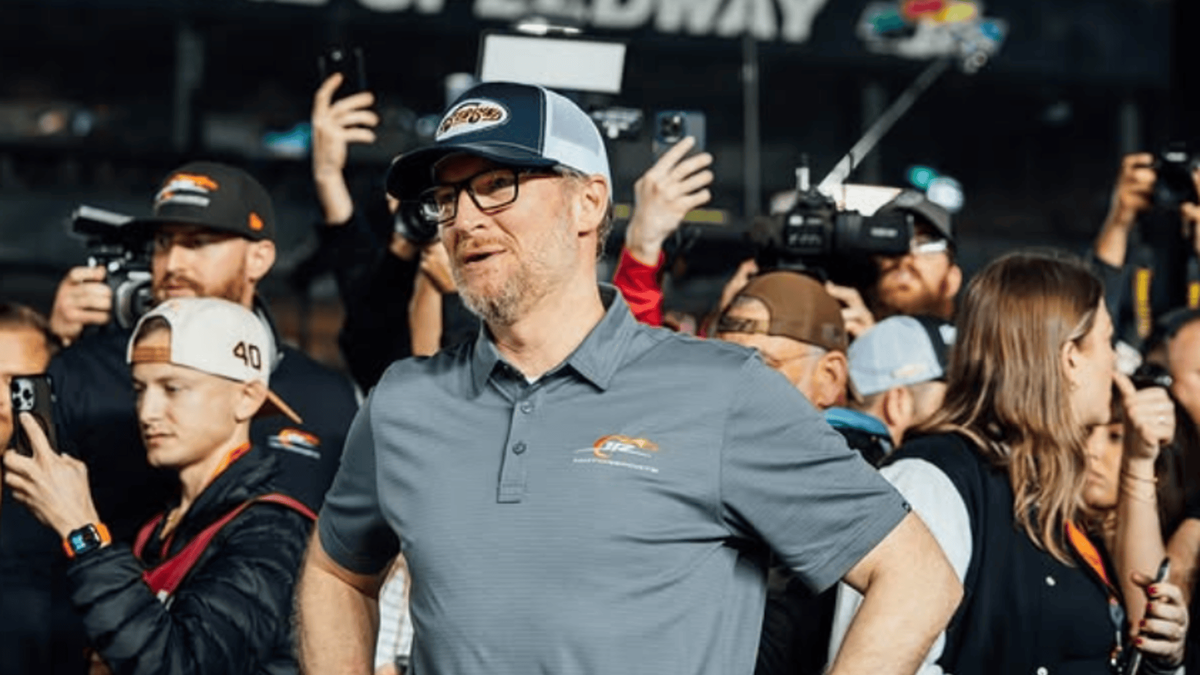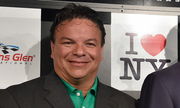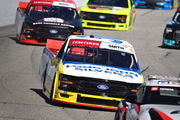
Imago
source: Imago

Imago
source: Imago
For NASCAR fans craving more raw power, this week brought a glimmer of hope. It came not from a driver or a crew chief, but from high up, NASCAR’s own Senior VP of Competition, Elton Sawyer. Speaking on SiriusXM NASCAR Radio after the Coca-Cola 600, Sawyer hinted at the possibility of more horsepower returning to Cup cars. His exact words? “It’s on the table. We are working closely with all the stakeholders in the industry, and as I said, the collaboration has been better than ever in our sport, on all topics.”
Watch What’s Trending Now!
For a sport that has flirted with higher horsepower but never fully committed in recent years, this was big news. Sawyer mentioned meetings with the Team Owner Council and conversations with engine builders. He said NASCAR was willing to climb a “tall mountain” if it meant giving fans a better product. That one line, “on the table”, lit up the Cup garage and social media alike. Horsepower has been a hot topic since the Next Gen car debuted in 2022. Fans and many drivers feel that short-track racing has lost its magic, and many feel that increasing horsepower is the only solution left on the table.
The news sent a ripple through the Cup garage. Most were hopeful. But not everyone thought a small boost would fix things. Some drivers believe that a simple 100 horsepower increase won’t make enough of a difference. Among those voices is a rising Cup Series name and a driver Dale Earnhardt Jr. once mentored on the short-track scene: Josh Berry. The short-track maestro stepped up and joined the debate with a brutal verdict.
ADVERTISEMENT
Josh Berry feels an uptick in 100 bhp won’t move the needle in the right direction
Josh Berry, known for his success on short tracks, didn’t hold back. Days after Sawyer’s announcement, Berry addressed the issue during an interview. While speaking with the media ahead of the upcoming cup race in Nashville, he was asked about the comments made by Sawyer. In response, he said, “Yeah, I mean, I definitely think it needs more. The question, I think, boils down to how much more it is going to need to move the needle, right?”
And exactly that’s the biggest question. Just like many veterans, Dale Earnhardt Jr.‘s protégé feels that a simple increase of 100 horsepower won’t make a big difference. When asked about the horsepower in the Next Gen car, he gave a brutal verdict. “I don’t really have the answer to that. I think it probably needs to be pretty significant, which is going to be—what I hate to happen is if we go up 100 horsepower and they don’t really look that different. Everybody’s like, “Oh, that wasn’t it.” So, I mean, it’s a combination of a lot of things, right?” he added.
ADVERTISEMENT
Doug Yates, NASCAR’s prominent engine builder, believes that a bump from the current 670 to 750 bhp won’t be a steep climb for the Next Gen cars. But, there is a huge gap if there are demands for a 900 horsepower engine, as this would result in additional costs, as the lifespan of these engines would go down significantly. In an era when teams are trying to save costs, no one would be on board to sign up for an experiment which might not produce the desired results. But, something needs to change if NASCAR wants to improve short track racing.
. @joshberry believes any horsepower increase may need to be significant: “It definitely needs more” pic.twitter.com/CzSfXtkQZI
— Frontstretch (@Frontstretch) May 31, 2025
ADVERTISEMENT
Berry’s point has data behind it. Even NASCAR officials admitted that their 2024 changes to the short-track package brought only small improvements. An insider, Brad Moran, said the 2024 Spring Phoenix race saw 2,800 green flag passes, the most yet for that package, but it still didn’t feel right to most drivers. The lack of horsepower limits tire wear and keeps everyone full throttle through corners, making passing harder. A minor gain in horsepower won’t change that dynamic. Drivers need a reason to lift off the gas. Right now, they don’t have one.
NASCAR veterans like Kevin Harvick have advocated for more than 1000 HPs for a long time. In 2024, he had said, “I still think it’s gotta have more than 1000 horsepower. For the life of me, I cannot understand why we wanna keep spending millions and millions of dollars on CFD, and wind tunnels, and changing parts and pieces. The engine cost hasn’t changed since we changed the engine rules. I don’t understand why we just don’t want them to blow the back tires off the car. It doesn’t make any sense to me.”
It’s rare to see such unified frustration from top-tier drivers. But they all want the same thing: more horsepower and better racing. While Berry speaks with thoughtfulness, his season has been anything but quiet. The Tennessee native finally broke through with a major Cup Series win at Las Vegas. Driving for Wood Brothers Racing, Berry outdueled Daniel Suárez in a late restart and powered to victory in the Pennzoil 400. It was a race full of grit, elbows, and raw speed.
ADVERTISEMENT
And it felt historic as Berry became the fourth straight Wood Brothers driver to notch his first Cup win in the No. 21 car. Apart from that win in the ongoing season, he has two Top 5s and three Top 10s in 13 races. His average finish of 20.5 is far better than last year’s 22.75. He has also booked his place in the playoffs and would be keen to get some great finishes in upcoming races. Before NASCAR makes its next move, it would be wise to listen to racers like Berry, especially when they’re also delivering wins.
Top Stories
Greg Biffle’s $4M Prized Possession Goes Up for Sale After Tragic Crash, Leaving NASCAR Fans Heartbroken

NASCAR World Mourns as Former Watkins Glen President Michael Printup Passes Away at 60

Fox Broadcaster Pens Heartfelt Message as Veteran Announcer Quits NASCAR

Denny Hamlin Offers First Words Since Losing Beloved Father in Anniversary Fire

3x Indy 500 Champion Driver Eyes to Live 19-YO Dream With Surprise NASCAR Return

Josh Berry learns a hard lesson at the Fairgrounds!
Josh Berry found himself in an unexpected storm after his dominant win at Nashville Fairgrounds Speedway on May 29. He had crossed the line 15 car lengths ahead of Trey Craig in the Rackley Roofing Battle of Broadway 150. It looked like another hometown celebration. But post-race inspection told a different story. Officials found Berry’s No. 21 Ford to be over the allowed left-side weight percentage.
ADVERTISEMENT
The violation, just a matter of a few pounds, was enough to disqualify him. Now, two days after the incident, Berry spoke about the disqualification and didn’t dodge the responsibility. “As cars naturally gain left-side weight as fuel burns off, you have to leave yourself a buffer when you go through pre-race inspection, and long story short, we were just a little too tight on the buffer pre-race,” Berry explained. He admitted a crucial oversight; his helmet wasn’t in hand during the rollover, meaning the small added weight wasn’t counted.
“Partly it was on me, just not doing all of the procedures and just showing up and running and not knowing how close it was going to be and how everything works,” Berry said. He called the moment “heartbreaking,” especially racing so close to home. Berry credited race officials for being professional and respectful throughout the inspection process, which took over an hour. And in a show of class, he stayed until Trey Craig was officially named the winner, even shaking his hand in the victory circle.
ADVERTISEMENT
ADVERTISEMENT
ADVERTISEMENT
ADVERTISEMENT

